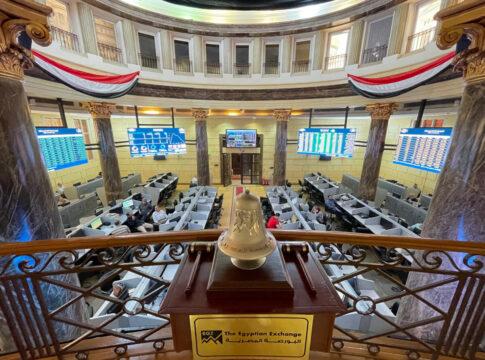The Egyptian Stock Exchange (EGX) ended last week positively, with key indices reflecting investor optimism amid a backdrop of regional economic developments. The benchmark EGX30 advanced by 1.33%, closing at 30,242.13 points, driven by robust performances from leading sectors. The Shariah-compliant EGX33 rose 0.91%, settling at 3,130.34 points, while the SMEs-focused EGX70 climbed 0.34% to 8,275.86 points. The broad-based EGX100 increased by 0.45%, reaching 11,379.84 points.
The week saw the total market capitalization surge to 2.21 trillion Egyptian pounds, bolstered by net buying from Arab and non-Arab foreign investors, who collectively added over 2.4 billion Egyptian pounds. Conversely, Egyptian investors were net sellers, offloading shares worth 2.45 billion Egyptian pounds.
Top gainers included Ibn Sina Pharma, whose shares soared by 10.61% to close at 6.150 Egyptian pounds, and El Nasr Clothes & Textiles (Kabo), which climbed 8.84% to 3.200 Egyptian pounds. Engineering Industries (ICON) also saw a significant jump of 7.44%, closing at 26.700 Egyptian pounds.
On the downside, Minapharm Pharmaceuticals shares slid by 5.83% to 188.300 Egyptian pounds, while Egyptian Iron & Steel and Ismailia Development and Real Estate Co experienced declines of 4.99% and 3.58%, respectively.
This week’s performance comes amid broader economic discussions within the Middle East about investment diversification and sustainability. The EGX’s growth aligns with regional efforts to attract foreign investment, as highlighted by recent forums in the Gulf Cooperation Council (GCC), where leaders emphasized the importance of cross-border financial collaboration.
Recently, the International Monetary Fund (IMF) noted that Middle Eastern markets are increasingly viewed as viable alternatives amidst global uncertainties. Analysts like Dr. Ahmed El-Sayed from the Cairo Economic Forum suggest that Egypt’s stock market is benefitting from this shift, as regional investors seek stable yet promising markets.
As the EGX continues to reflect these dynamics, the outlook remains cautiously optimistic. With geopolitical tensions influencing energy prices and trade routes, Egypt’s strategic position and market reforms could play a pivotal role in sustaining this momentum.


